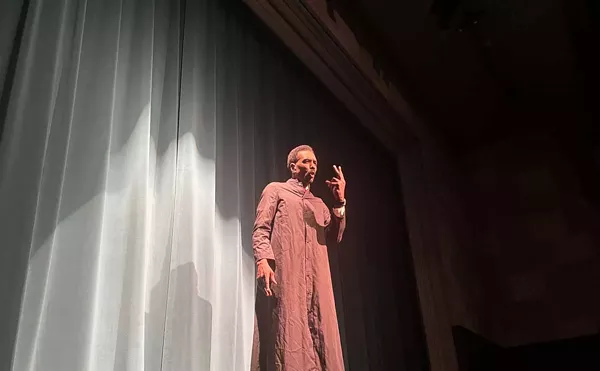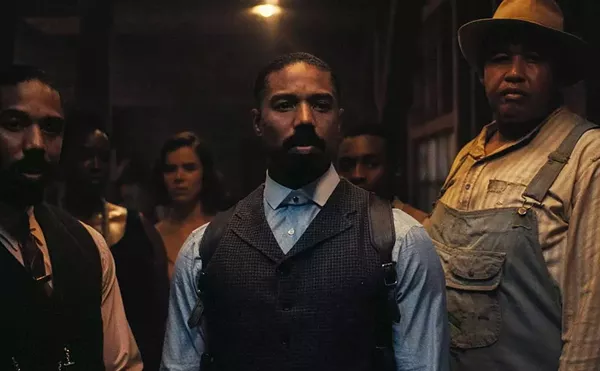
Audio By Carbonatix
[
{
"name": "GPT - Leaderboard - Inline - Content",
"component": "35519556",
"insertPoint": "5th",
"startingPoint": "3",
"requiredCountToDisplay": "3",
"maxInsertions": 100,
"adList": [
{
"adPreset": "LeaderboardInline"
}
]
}
]
In the bohemian New York City of the 1940s, Joseph Mitchell (Stanley Tucci) is a staff writer at the New Yorker who specializes in pithy portraits of the city’s neglected underclass. So when he first spies the disheveled but well-spoken Joe Gould (Ian Holm) at a Greenwich Village diner, Mitchell smells a story.
It turns out that Gould is a writer and neighborhood character, a fallen patrician who lives on the street and is compiling a massive oral history of America culled from the everyday conversations of ordinary people. Mitchell, suitably fascinated, does a profile which turns Joe Gould into a minor celebrity. But as Mitchell’s photographer-wife, Therese (Hope Davis), reminds him, the story doesn’t end just because the writer’s finished with it.
Screenwriter Howard Rodman has constructed an exploration of the symbiotic relationship between these two not-so-average Joes from the collected works of the real-life Mitchell, who wrote about this fascinating crank in articles titled "Professor Seagull" and "Joe Gould’s Secret." Director Stanley Tucci, who underplays nicely as the unassuming professional observer (his North Carolina accent is a sweet, mellifluous rumble), subtly shifts the power dynamic between not just Gould and Mitchell, but Joseph Ferdinand Gould and the world at large.
Ian Holm is truly remarkable as the complex, manic, maddening Gould. A charming eccentric determined to live life on his own terms, he’s also prone to rages and tantrums, and his flophouse existence – supported by donations to "the Joe Gould Fund" by friends like painter Alice Neel (Susan Sarandon) who are marginally better off than he is but believe in his "genius" – takes a heavy toll.
Self-creation is a large part of the American mythology, and Joe Gould has fashioned himself into a quixotic nonconformist archetype, one who believes the pursuit of a goal is ultimately more important than achieving it.
Serena Donadoni writes about film for the Metro Times. E-mail her at letters@metrotimes.com.





